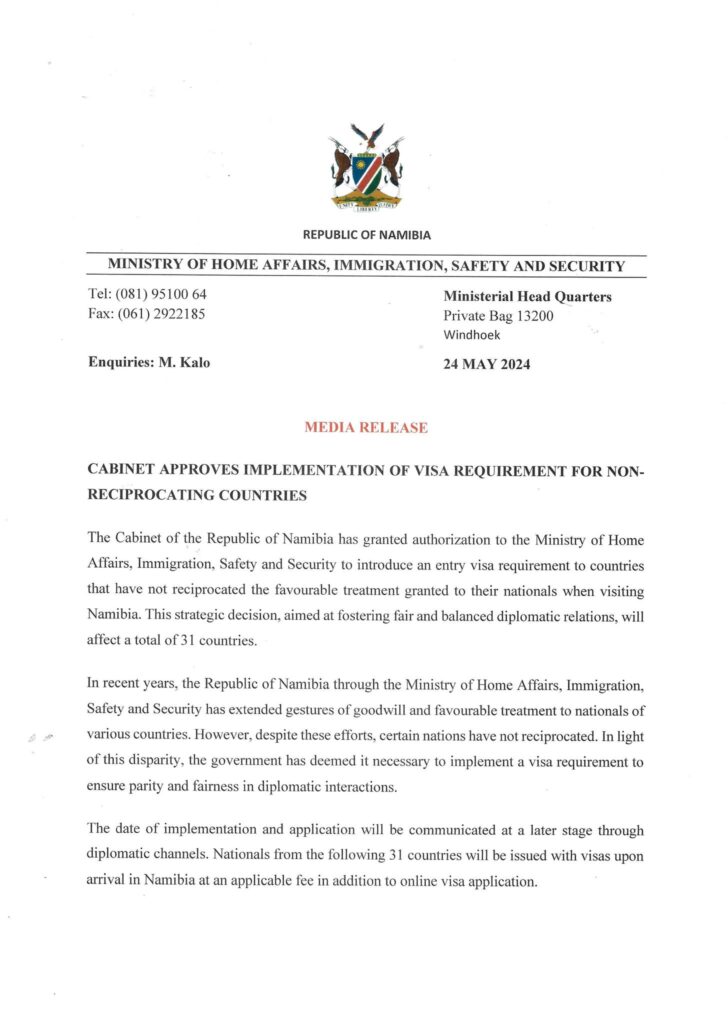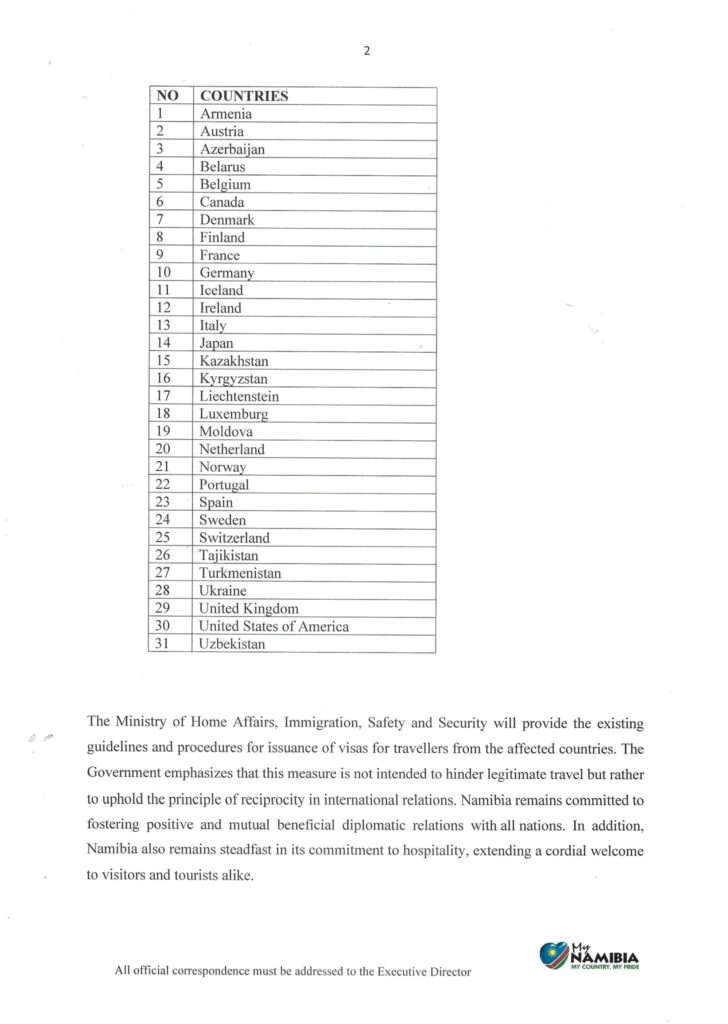How Namibia’s New Visa Policy Promotes Fairness, Security, and Continental Solidarity in Africa
In a landmark decision, the Namibian cabinet has approved the implementation of visa requirements for non-reciprocal countries, specifically targeting Western nations including European countries, the USA, and the UK. This strategic move is a positive development not only for Namibia but for the entire African continent. It sets a precedent that encourages equitable international relations and underscores the importance of reciprocity in global travel policies. Facebook


Why This is a Positive Move for Africa
- Promotes Fairness and Reciprocity: Namibia’s decision to impose visa requirements on countries that do not offer reciprocal arrangements ensures a fair and balanced approach to international travel. This move highlights the need for mutual respect in diplomatic relations, encouraging Western nations to reassess and potentially amend their visa policies towards African countries.
- Economic Benefits: The imposition of visa requirements can lead to increased revenue from visa fees, which can be reinvested in national development projects. Furthermore, this policy can promote local tourism by encouraging Western travelers to explore visa procedures in advance, potentially leading to longer stays and higher spending in Namibia.
- Strengthening Regional Integration: By maintaining free or borderless movement among African countries, Namibia supports the African Continental Free Trade Area (AfCFTA) initiative. This seamless intra-African travel fosters stronger economic ties, boosts intra-African trade, and facilitates the movement of goods, services, and people, thereby driving the continent towards greater economic integration and prosperity.
- Enhancing Security and Sovereignty: Implementing visa requirements enables better monitoring and control of foreign nationals entering the country. This contributes to national security, allowing Namibia to safeguard its borders more effectively while ensuring that visitors comply with its regulations.
- Encouraging Continental Solidarity: Namibia’s stance serves as an inspiration for other African nations to adopt similar policies. This collective approach can lead to a stronger, united front that advocates for reciprocal travel arrangements. It promotes a sense of solidarity and mutual support among African countries, emphasizing the importance of equal treatment on the global stage.
- Boosting Tourism and Cultural Exchange: While the new visa requirements may pose initial challenges, they also present an opportunity for Namibia to showcase its rich cultural heritage and natural beauty to those who genuinely seek to explore it. By streamlining the visa process for serious travelers, Namibia can attract a dedicated and respectful tourist base, enhancing cultural exchange and understanding.
Conclusion
Namibia’s decision to implement visa requirements for non-reciprocal Western countries is a progressive and positive step towards achieving fair international relations and fostering continental unity. This move not only benefits Namibia by ensuring equitable treatment but also sets a powerful example for other African nations. By advocating for reciprocal visa policies and promoting free movement within the continent, African countries can enhance economic growth, strengthen regional ties, and assert their sovereignty on the global stage. It is a call to action for all African nations to embrace policies that reflect mutual respect and cooperation, paving the way for a more unified and prosperous Africa.
